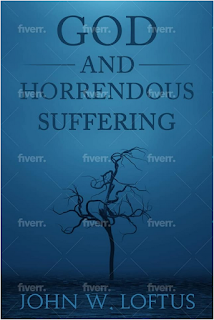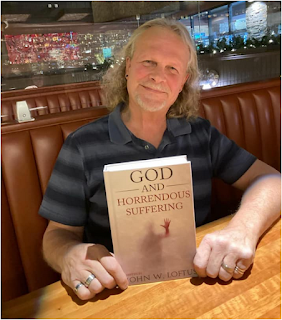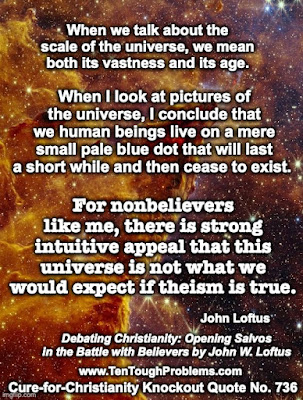God and Horrendous Suffering
 Book Cover: You can see me holding the hardback book above, but there were two other covers to choose from, both of which are possibilities for the 2nd edition.
Book Cover: You can see me holding the hardback book above, but there were two other covers to choose from, both of which are possibilities for the 2nd edition.Authors & Chapters: It was a pleasant surprise that Darren accepted my book proposal before I had many authors and specific chapters. He did so based on the quality of my earlier books That was nice! He offered the possibility for a call for papers, but I didn't need it.
Darren Slade:
 Dr. Slade is my friend and publisher. He was an absolute joy to work with and an expert at what he does.
Dr. Slade is my friend and publisher. He was an absolute joy to work with and an expert at what he does.Vitaly Malkin: Malkin gave me permission to choose an excerpt from his excellent book, Dangerous Illusions for his chapter, The Problem of the Jewish Holocaust. So I did, making a few edits along the way. But when it came to finding the references for his quotes from his bibliography he didn't help at all. I did my best on them, even if it meant quoting from Wikipedia (sorry).
Mark Gura: My friend Mark tried to cram way too much information into one chapter. He went through four different versions until he had it up to 12k words, and asked for more! I know that problem very well. What you'll find in the end result is his content filtered through my edits, as I selected from, re-arranged, and even re-wrote parts of his chapter for clarity, with his consent. It ended up at 7,775 words. I didn't add enough to be a co-author, but the time it took was the same as if I was. Together we made it into a wonderful piece! He has a book in him and I hope he writes it!
Gunther Laird: At the very last minute readers of this blog prodded me to have a chapter on the Thomistic solution to evil, with a critical eye on Catholic apologist Edward Feser's defense of it. Darren's knee-jerk reaction wasn't favorable in allowing it, but he turned right around and did so graciously. Gunther Laird obliged with his chapter. I'm happy about this, although it was surely the reason why the book came out about a month late.
Elicka Peterson Sparks: Sparks didn't have the time to choose an excerpt out of her book, The Devil You Know: The Surprising Link between Conservative Christianity and Crime, for publication. So I summarized her book in an excerpt of 8,000 of her own words. See if you can do that with a book of her size! There are no footnotes in her chapter because one third of her book is in the footnotes! If I included the footnotes it would greatly enlarge her excerpt. You'll have to buy her book to get them, and I recommend you do. Later she copyedited and approved my excerpt. As an aside, I found her an excellent opening quote from Thomas Paine: “Belief in a cruel God makes a cruel man.”
Yes, folks, this is what it takes to be a good editor. I put this book together, dealt with the authors, the publisher, wrote the Introduction plus five chapters, and am promoting it. Doing an anthology of freshly written chapters is one of the most time consuming projects someone can do. This is the seventh time I did it! I've done enough for one person.
--------------
John W. Loftus is a philosopher and counter-apologist credited with 13 critically acclaimed books.
Please support my work by sharing my posts, or by subscribing, donating, or buying my books at Amazon then telling others about them! As an Amazon Associate John earns a small amount of money from purchases made from Amazon. Buying anything through them helps fund my work here, and is greatly appreciated! Thanks for your support!










